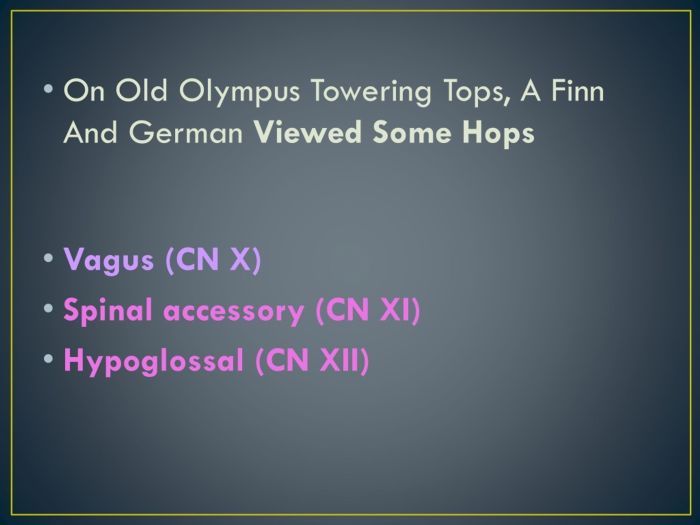On old olympus towering tops a friendly viking – In the realm of literature, “On Old Olympus Towering Tops: A Friendly Viking” stands as a captivating phrase that evokes a tapestry of allusions, metaphors, and cultural parallels. Drawing upon the grandeur of Greek mythology and the intrepid spirit of the Vikings, this phrase invites us on an extraordinary literary journey.
The juxtaposition of “Olympus,” the sacred abode of the gods, and the “friendly Viking,” a symbol of adventure and exploration, hints at an intriguing narrative arc. As we delve into the depths of this phrase, we will unravel its metaphorical layers, explore its narrative structure, and uncover the profound themes and symbolism that lie within.
Literary Allusions and Historical Context

The phrase “on old Olympus towering tops” evokes a rich tapestry of literary and historical allusions. “Olympus,” in Greek mythology, is the sacred mountain home of the gods, symbolizing power, divinity, and the pinnacle of achievement. The “Vikings,” on the other hand, were a legendary group of seafaring warriors and explorers from Scandinavia, known for their boldness, adaptability, and exploration of new frontiers.
The juxtaposition of these two elements suggests a possible connection between the ancient Greek concept of divine power and the Viking spirit of adventure. Both cultures valued strength, ambition, and the pursuit of greatness, albeit in different ways. This phrase could hint at the potential for unexpected alliances, the blending of different cultures, and the search for new perspectives and experiences.
Metaphorical Interpretations

The phrase “towering tops” can be interpreted as a metaphor for power, ambition, or the pursuit of excellence. The “friendly Viking” could represent an unexpected or unconventional ally or perspective, challenging traditional notions of power and authority. The phrase “on old Olympus” evokes a sense of legacy, tradition, and the passage of time, suggesting that the pursuit of greatness often involves building upon the foundations of the past while embracing new ideas and perspectives.
Narrative Structure and Characterization
The phrase “on old Olympus towering tops a friendly Viking” suggests a potential narrative arc or conflict. The “friendly Viking” could be an outsider who challenges the established order on Olympus, leading to conflict or resolution. The setting of Olympus, with its connotations of power and tradition, influences the development of the characters and plot, shaping their motivations and actions.
Themes and Symbolism
The phrase explores themes of ambition, friendship, and the clash of cultures. “Olympus” symbolizes power and authority, while the “friendly Viking” represents a challenge to tradition and a search for new perspectives. The phrase could also be interpreted as a metaphor for human nature, with its desire for greatness and its capacity for both friendship and conflict.
Cultural and Historical Parallels

Similar phrases or stories can be found in other cultures and historical periods. For example, the Norse myth of Thor’s visit to the giants of Jotunheim shares themes of power, ambition, and the clash of different cultures. These parallels highlight the universality of human themes and experiences, and the ways in which literature and mythology reflect and shape our understanding of the world.
Quick FAQs: On Old Olympus Towering Tops A Friendly Viking
What is the significance of “Olympus” in Greek mythology?
In Greek mythology, Olympus is the sacred mountain where the gods reside. It represents the realm of the divine and is often associated with power, authority, and immortality.
Who were the Vikings and what is their connection to the phrase?
The Vikings were a group of seafaring warriors and traders who originated in Scandinavia. Their legendary explorations and raids brought them into contact with various cultures, including the Greeks. The phrase “friendly Viking” suggests an unexpected or unconventional alliance or perspective.
How does the setting of “Olympus” influence the phrase?
The setting of Olympus as the “towering tops” adds a sense of grandeur and elevation to the phrase. It suggests that the events or characters involved are of great importance or significance, and that they are set against a backdrop of power and authority.
